Skip to Content
1. Rabindranath Tagore (1861–1941)

Key Details:
- Full Name: Rabindranath Thakur (anglicized as Tagore)
- Born: May 7, 1861, Calcutta (now Kolkata)
- Died: August 7, 1941
- Languages: Bengali, English
- Notable Awards: Nobel Prize in Literature (1913) (first non-European winner), Knighthood (later renounced after Jallianwala Bagh massacre)
Major Works:
- Gitanjali (Song Offerings, 1910) – Collection of poems that won him the Nobel Prize.
- The Home and the World (Ghare-Baire, 1916) – A novel on nationalism, love, and politics.
- Chokher Bali (1903) – A bold exploration of widow remarriage and female desire.
- Kabuliwala (1892) – A famous short story about a migrant Afghan and a Bengali girl.
- National Anthems: Wrote "Jana Gana Mana" (India) and "Amar Sonar Bangla" (Bangladesh).
Themes & Style:
- Spirituality & Humanism: Blended Upanishadic philosophy with universal love.
- Nature & Mysticism: Often used nature as a metaphor for divine beauty.
- Social Reform: Advocated women’s rights, education, and anti-colonialism.
Legacy:
- Founded Visva-Bharati University (Shantiniketan) to promote holistic education.
- Inspired Gandhi, Nehru, and global thinkers like W.B. Yeats and Ezra Pound.
- His works remain foundational in Bengali literature and world poetry.
2. R.K. Narayan (1906–2001)
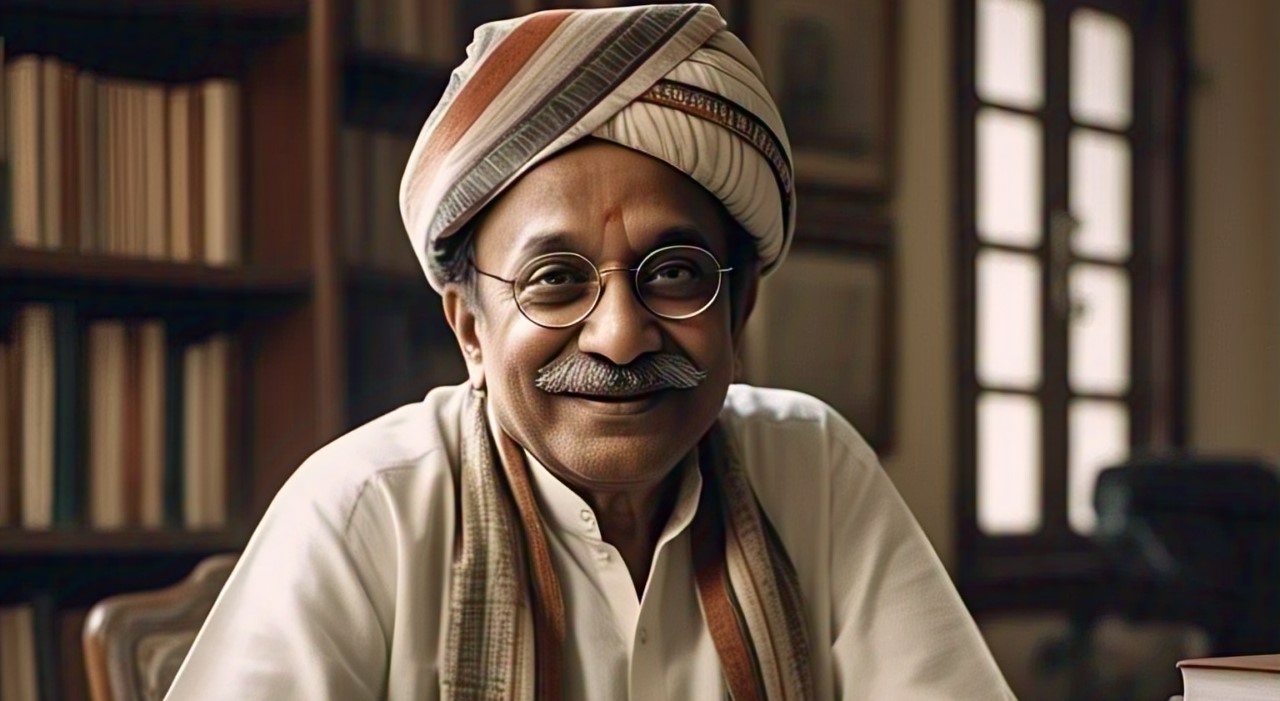
Key Details:
- Full Name: Rasipuram Krishnaswami Iyer Narayanaswami
- Born: October 10, 1906, Madras (now Chennai)
- Died: May 13, 2001
- Language: English
- Notable Awards: Padma Vibhushan (2000), Sahitya Akademi Award
Major Works:
- Malgudi Days (1943) – Short stories set in the fictional South Indian town of Malgudi.
- The Guide (1958) – His most famous novel (later a Dev Anand-Waheeda Rehman film).
- Swami and Friends (1935) – First book introducing Malgudi and its characters.
- The Financial Expert (1952) – Satire on greed and ambition.
Themes & Style:
- Everyday India: Focused on ordinary people, humor, and small-town life.
- Simple yet Profound: Used straightforward prose to explore deep human emotions.
- Myth & Realism: Blended Indian folklore with modern storytelling.
Legacy:
- Created Malgudi, one of literature’s most enduring fictional towns.
- Pioneered Indian writing in English alongside Mulk Raj Anand and Raja Rao.
- His works remain prescribed in schools globally for their relatable storytelling.
3. Salman Rushdie (b. 1947)
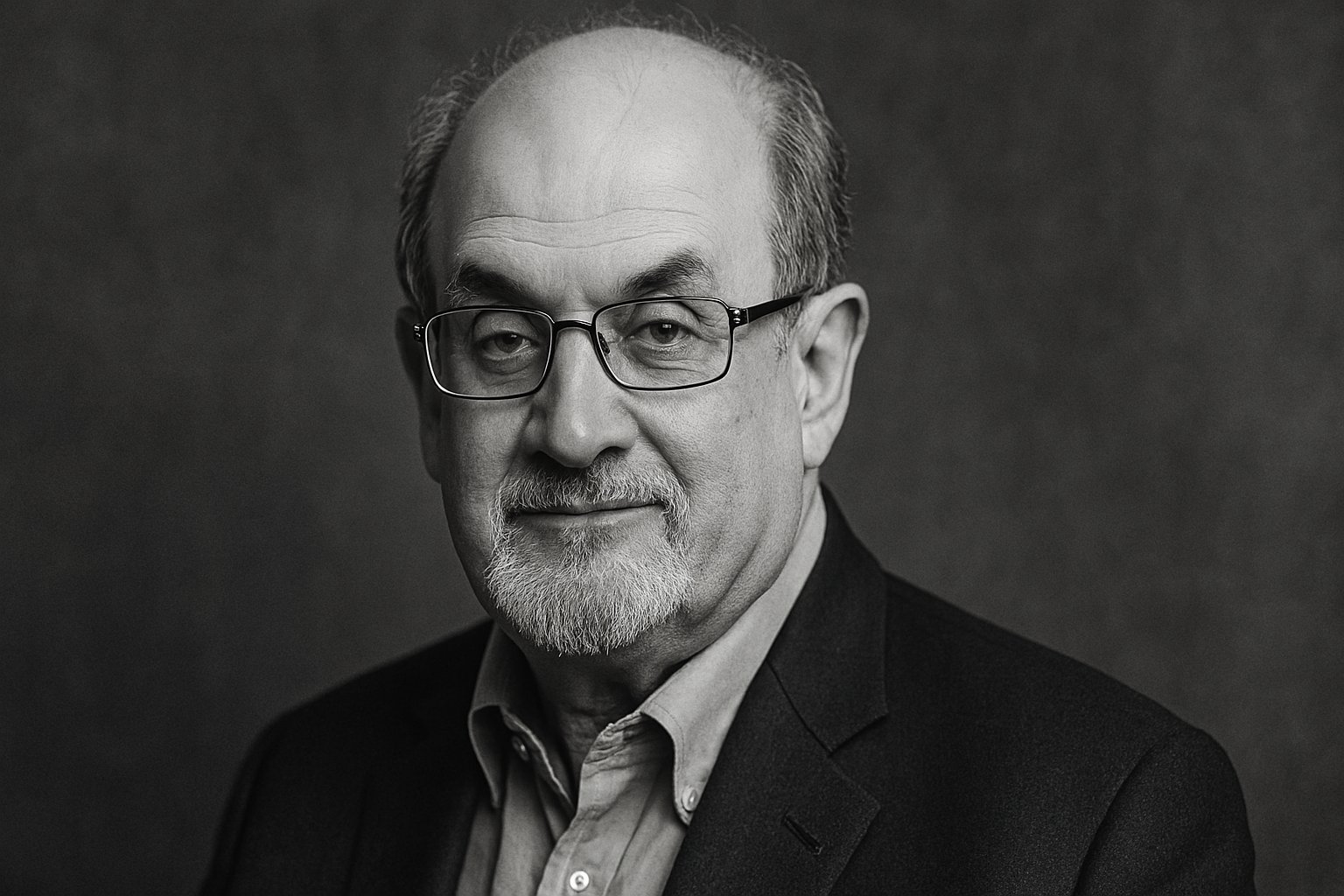
Key Details:
- Full Name: Sir Ahmed Salman Rushdie
- Born: June 19, 1947, Bombay (now Mumbai)
- Language: English
- Notable Awards: Booker Prize (1981), Booker of Bookers (1993), Knighthood (2007)
Major Works:
- Midnight’s Children (1981) – Won the Booker; magical realism on post-Independence India.
- The Satanic Verses (1988) – Controversial novel led to a fatwa against him.
- Haroun and the Sea of Stories (1990) – A children’s book defending free speech.
- The Moor’s Last Sigh (1995) – A saga of Bombay’s multicultural history.
Themes & Style:
- Magical Realism: Blended fantasy with historical events.
- Diaspora & Identity: Explored migration, hybrid cultures, and rootlessness.
- Political Satire: Critiqued religious extremism and authoritarianism.
Legacy:
- One of the most controversial yet celebrated global authors.
- A free speech icon after surviving the Ayatollah Khomeini’s fatwa.
- Inspired writers like Arundhati Roy and Kiran Desai.
4. Arundhati Roy (b. 1961)
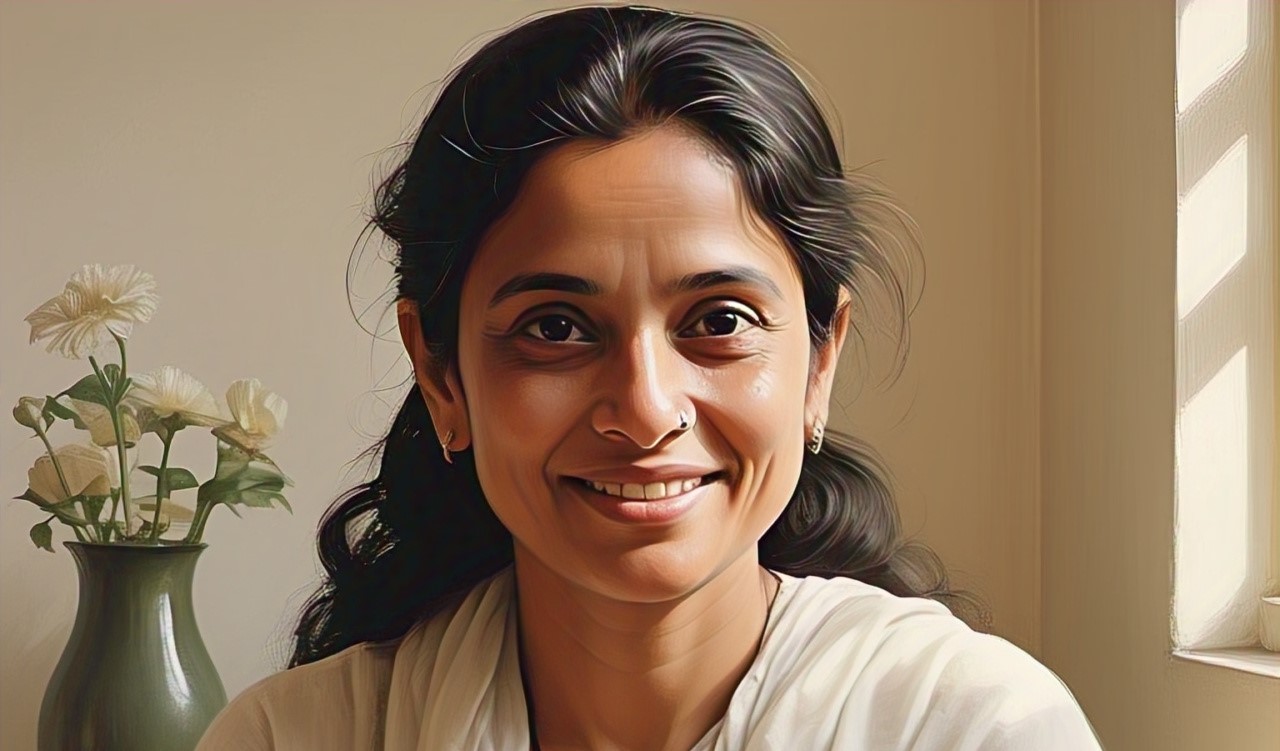
Key Details:
- Full Name: Suzanna Arundhati Roy
- Born: November 24, 1961, Shillong, Meghalaya
- Language: English
- Notable Awards: Booker Prize (1997), Sydney Peace Prize
Major Works:
- The God of Small Things (1997) – Booker-winning novel on caste, love, and tragedy.
- The Ministry of Utmost Happiness (2017) – A sprawling novel on Kashmir, activism.
- Non-Fiction: Capitalism: A Ghost Story, The Algebra of Infinite Justice (political essays).
Themes & Style:
- Lyrical & Poetic: Rich, sensory prose with nonlinear storytelling.
- Social Justice: Focuses on caste, environmentalism, and anti-capitalism.
- Controversial: Vocal critic of Indian govt, globalization, and war.
Legacy:
- One of India’s most influential activist-writers.
- Rare author equally famous for fiction and political commentary.
- Inspired a generation of feminist and postcolonial literature.
5. Vikram Seth (b. 1952)
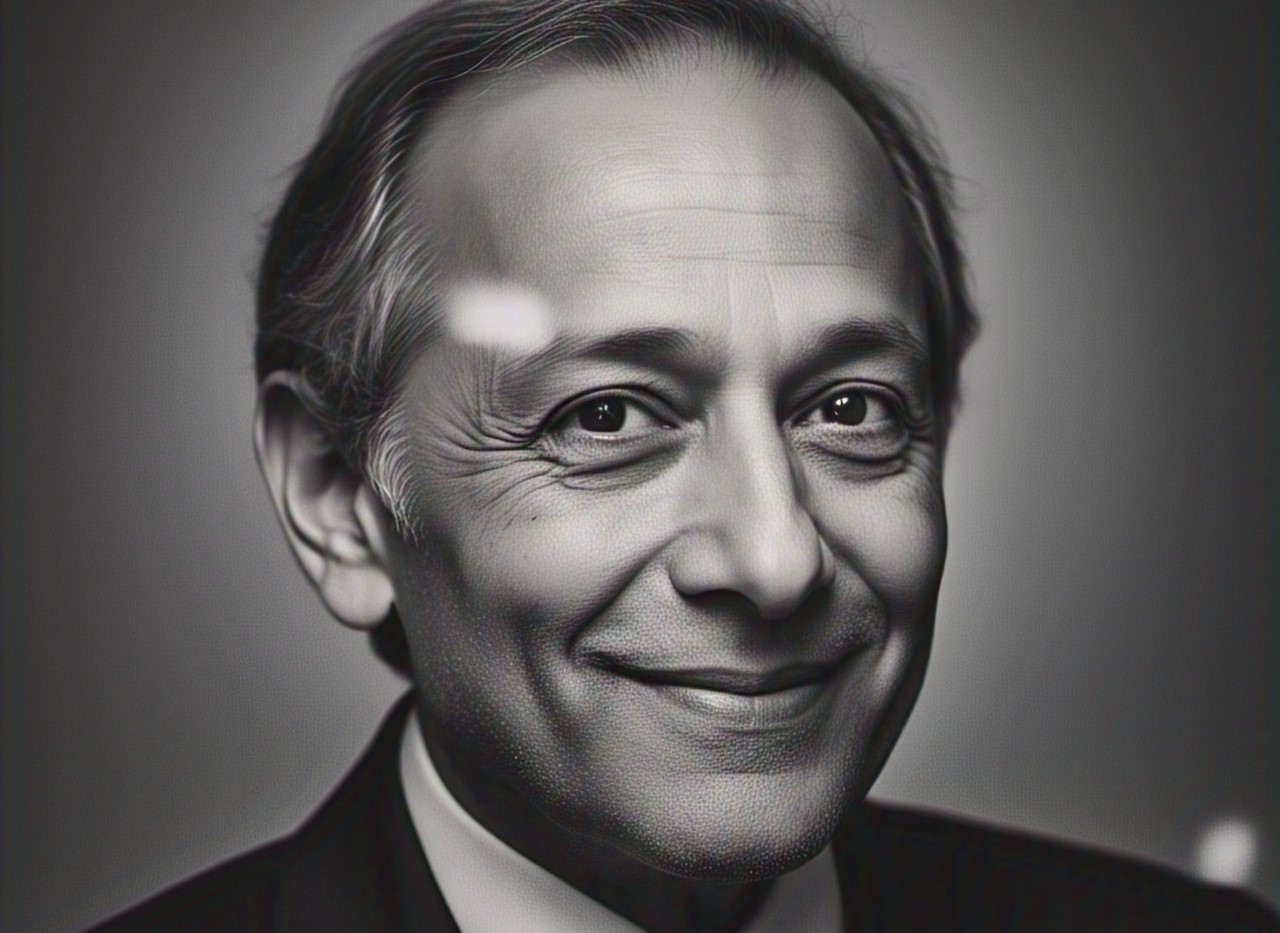
Key Details:
- Full Name: Vikram Seth
- Born: June 20, 1952, Calcutta (now Kolkata)
- Language: English
- Notable Awards: Padma Shri, Sahitya Akademi Award
Major Works:
- A Suitable Boy (1993) – One of the longest novels in English (1,349 pages).
- The Golden Gate (1986) – A novel entirely in verse (inspired by Pushkin).
- An Equal Music (1999) – A romance between musicians.
Themes & Style:
- Epic Storytelling: Deeply researched, multi-generational narratives.
- Music & Poetry: Often weaves classical music and verse into prose.
- Human Relationships: Explores love, family, and cultural clashes.
Legacy:
- Master of both poetry and prose.
- Revived the "great Indian novel" tradition with A Suitable Boy.
- Considered a bridge between Indian and Western literary traditions.
6. Jhumpa Lahiri (b. 1967)
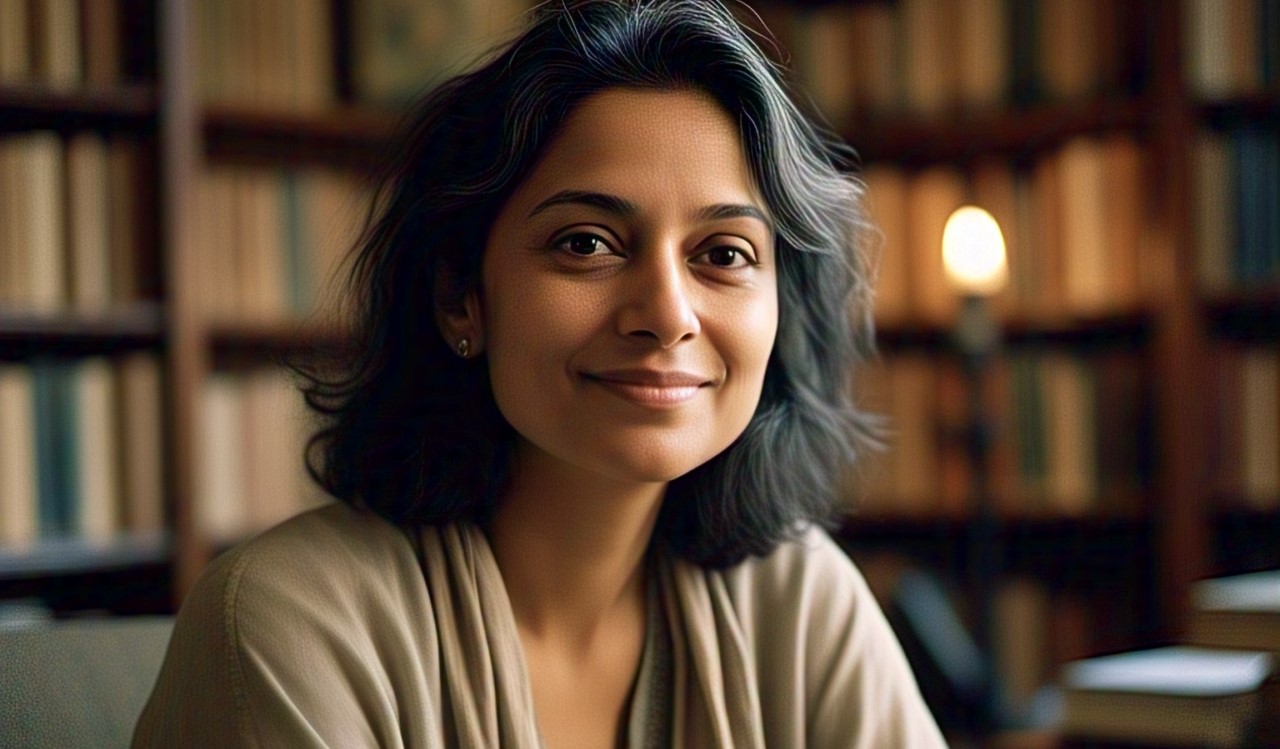
Key Details:
- Full Name: Nilanjana Sudeshna "Jhumpa" Lahiri
- Born: July 11, 1967, London (raised in Rhode Island, USA)
- Languages: English, Italian (now writes primarily in Italian)
- Notable Awards: Pulitzer Prize (2000), PEN/Hemingway Award, DSC Prize
Major Works:
- Interpreter of Maladies (1999) – Pulitzer-winning short story collection.
- The Namesake (2003) – Novel adapted into a Mira Nair film; explores immigrant identity.
- Unaccustomed Earth (2008) – Acclaimed short stories on diaspora life.
- The Lowland (2013) – Shortlisted for the Booker Prize; spans India and America.
- Whereabouts (2021) – First novel written in Italian and self-translated.
Themes & Style:
- Diaspora & Identity: Conflict between Indian roots and Western upbringing.
- Quiet Realism: Subtle, understated prose with deep emotional impact.
- Family & Generational Gaps: Explores parent-child relationships in immigrant households.
Legacy:
- One of the most celebrated diaspora writers of her generation.
- Her works are taught in universities worldwide as quintessential immigrant literature.
- Recently shifted to writing in Italian, showcasing her linguistic versatility.
7. Ruskin Bond (b. 1934)
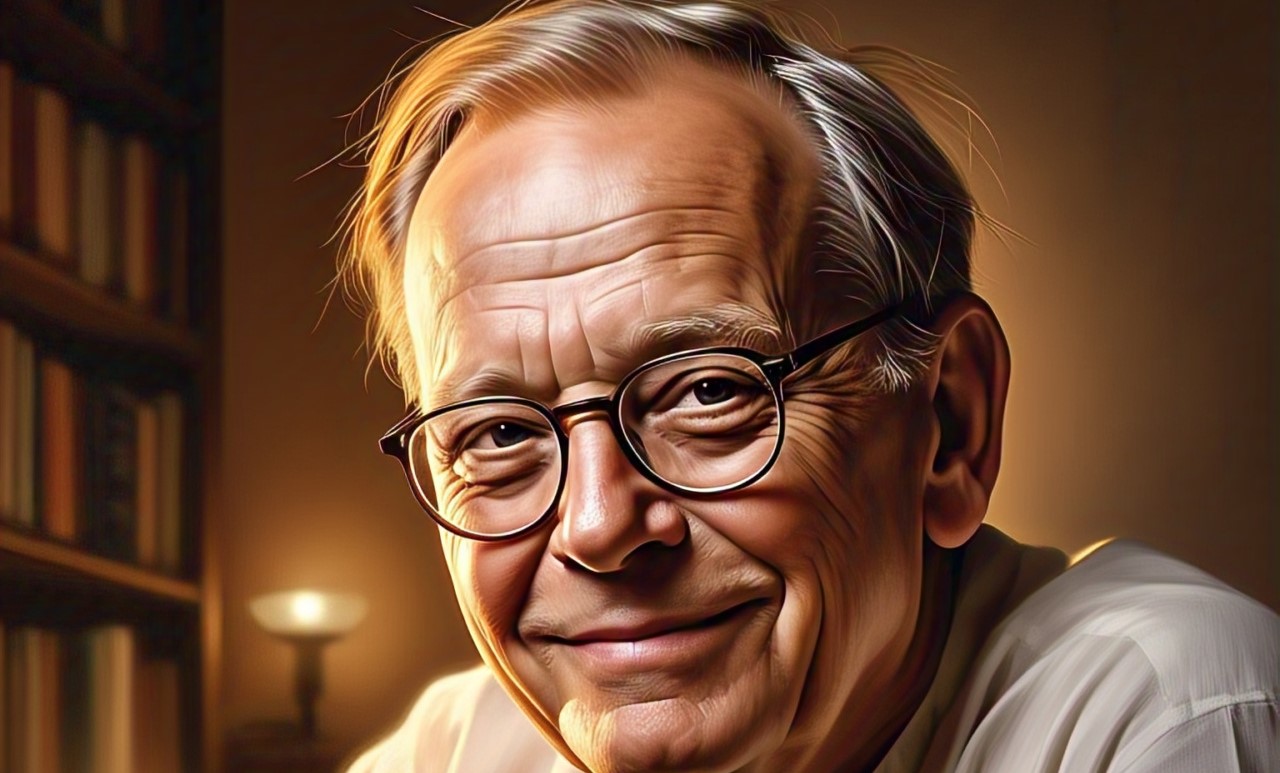
Key Details:
- Full Name: Ruskin Bond
- Born: May 19, 1934, Kasauli, Himachal Pradesh
- Language: English
- Notable Awards: Padma Bhushan (2014), Sahitya Akademi Award
Major Works:
- The Room on the Roof (1956) – Semi-autobiographical novel; won the John Llewellyn Rhys Prize.
- The Blue Umbrella (1980) – Novella adapted into a Vishal Bhardwaj film.
- Rusty Series – Stories about a young Anglo-Indian boy (partly based on Bond’s life).
- Our Trees Still Grow in Dehra (1991) – Collection of nostalgic hill-station stories.
Themes & Style:
- Nature & Simplicity: Love for the Himalayas, forests, and small-town life.
- Childhood & Nostalgia: Gentle, autobiographical storytelling.
- Minimalist & Warm: Easy-to-read yet profound prose.
Legacy:
- India’s most beloved children’s author (often called the "Indian Wordsworth").
- His Mussoorie home is a pilgrimage site for book lovers.
- Continues to write well into his 80s, with over 100 books published.
8. Premchand (1880–1936
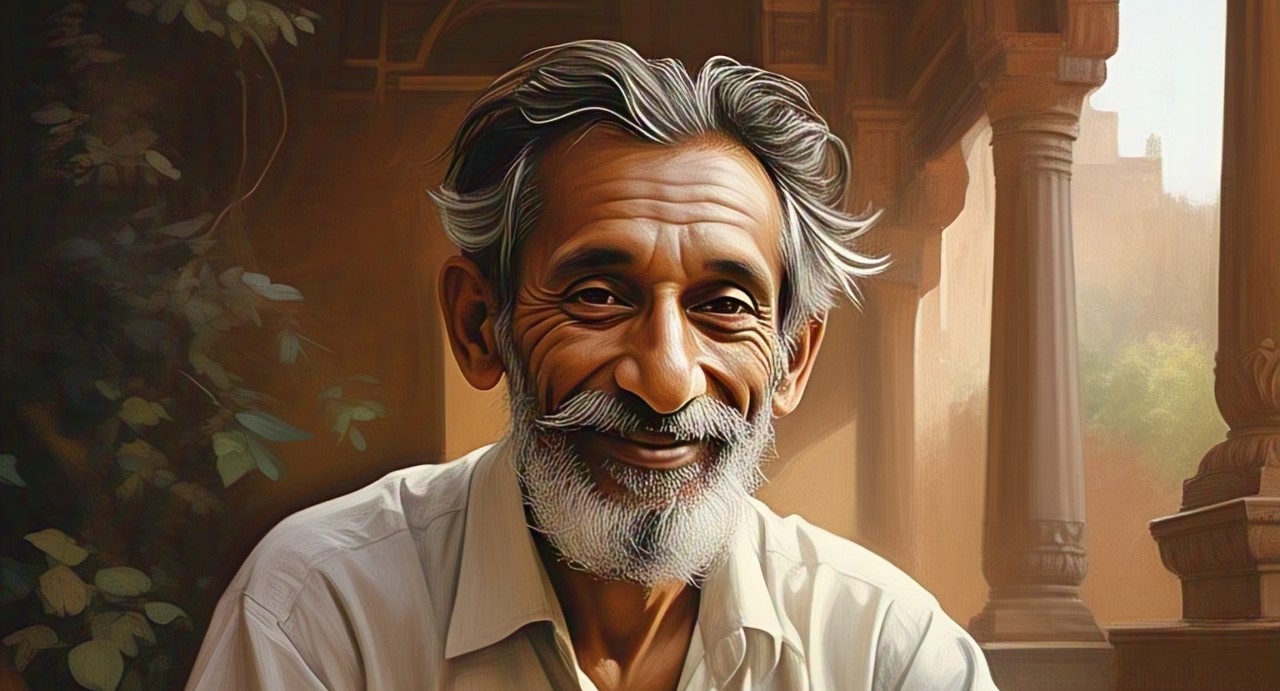
Key Details:
- Full Name: Dhanpat Rai Shrivastava (pen name: Premchand)
- Born: July 31, 1880, Lamhi, Uttar Pradesh
- Died: October 8, 1936
- Languages: Hindi, Urdu
- Legacy: Father of Modern Hindi Literature
Major Works:
- Godaan (1936) – His masterpiece on peasant exploitation (considered the "great Hindi novel").
- Nirmala (1925) – Tackles child marriage and women’s suffering.
- Kafan (1936) – A dark, satirical short story on poverty.
- Gaban (1931) – Explores greed and moral downfall.
Themes & Style:
- Social Realism: Focused on caste, poverty, and gender inequality.
- Moral Lessons: Stories often had a reformist message.
- Simple & Powerful: Used colloquial language to connect with the masses.
Legacy:
- Revolutionized Hindi/Urdu fiction by moving away from mythology to social issues.
- Inspired progressive writers like Munshi Premchand and Saadat Hasan Manto.
- His works remain part of Indian school curricula.
9. Mahadevi Varma (1907–1987)
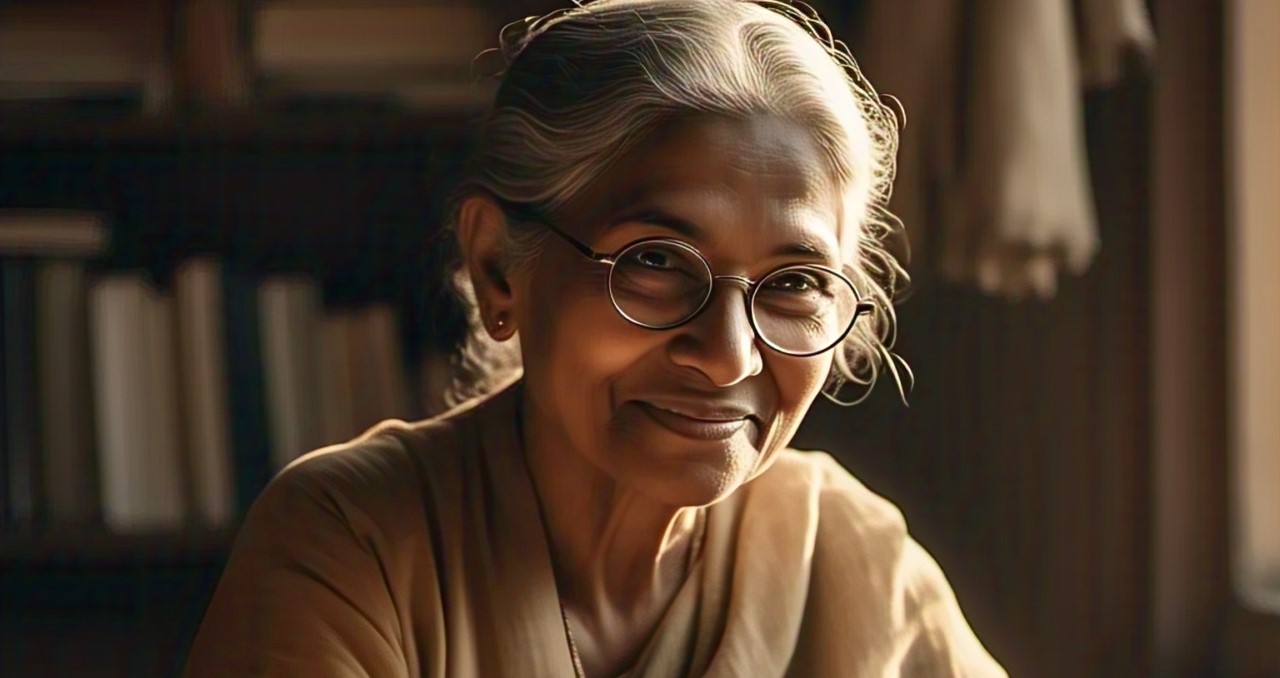
Key Details:
- Full Name: Mahadevi Varma
- Born: March 26, 1907, Farrukhabad, Uttar Pradesh
- Died: September 11, 1987
- Language: Hindi
- Notable Awards: Jnanpith Award (1982), Padma Bhushan
Major Works:
- Yama (1936) – Landmark poetry collection in the Chhayavaad movement.
- Nihar (1930) – Lyrical, nature-inspired poems.
- Atit Ke Chalchitra (1941) – Feminist essays on women’s struggles.
- Mera Parivar (1972) – Memoirs reflecting her unconventional life.
Themes & Style:
- Chhayavaad (Romanticism): Mystical, melancholic, and nature-centric poetry.
- Feminism: Advocated women’s education and independence.
- Spiritual & Philosophical: Blended Bhakti poetry with modern thought.
Legacy:
- The "Meera of Modern Hindi" for her soulful poetry.
- One of the four pillars of Chhayavaad (with Nirala, Pant, and Prasad).
- First woman Hindi poet to win the Jnanpith Award.
10. Amish Tripathi (b. 1974)
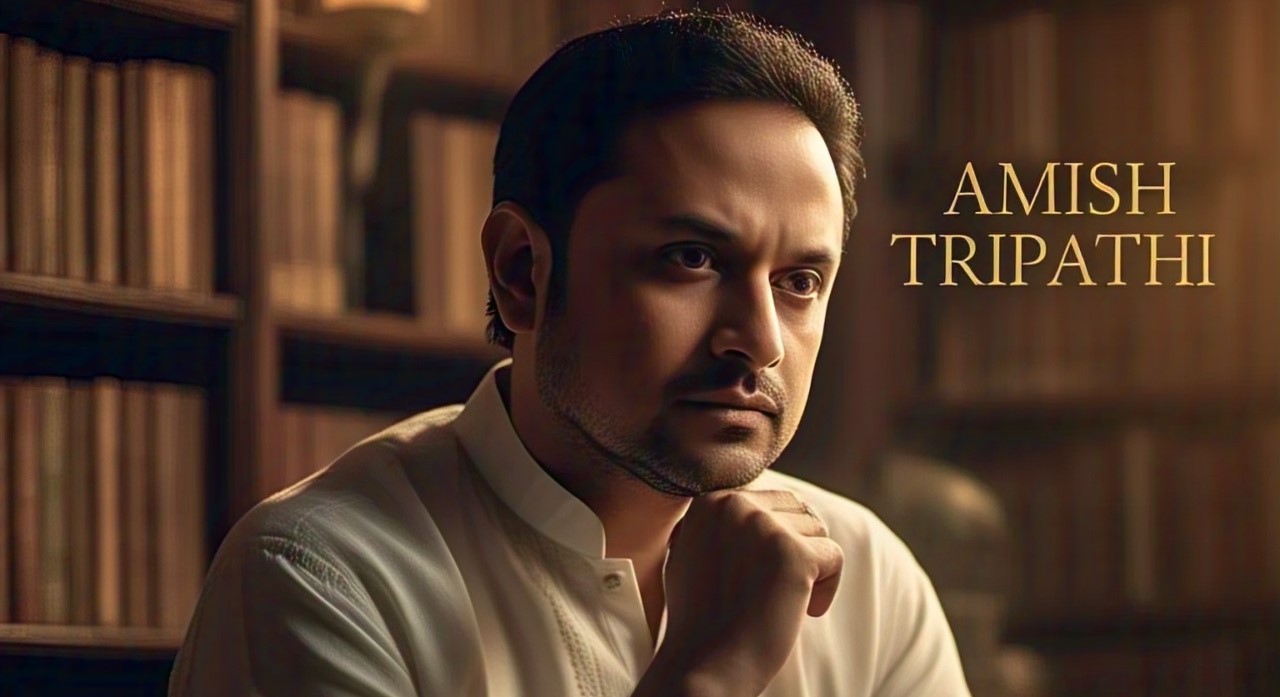
Key Details:
- Full Name: Amish Tripathi
- Born: October 18, 1974, Mumbai
- Language: English
- Notable Achievements: Fastest-selling Indian author, over 5 million copies sold.
Major Works:
- The Immortals of Meluha (2010) – First book in the Shiva Trilogy (reimagines Shiva as a warrior).
- Scion of Ikshvaku (2015) – First in the Ram Chandra Series (retells the Ramayana).
- War of Lanka (2022) – Latest in the Ram Chandra Series.
Themes & Style:
- Mythological Fiction: Modern, action-packed retellings of Hindu epics.
- Commercial & Accessible: Fast-paced plots with mass appeal.
- Philosophical Undertones: Explores dharma, leadership, and morality.
Legacy:
- Pioneered the Indian mythological fiction boom (inspired authors like Ashwin Sanghi).
- Books adapted into web series, comics, and audiobooks.
- Combines MBA marketing savvy with storytelling (ex-banker turned writer).
End









